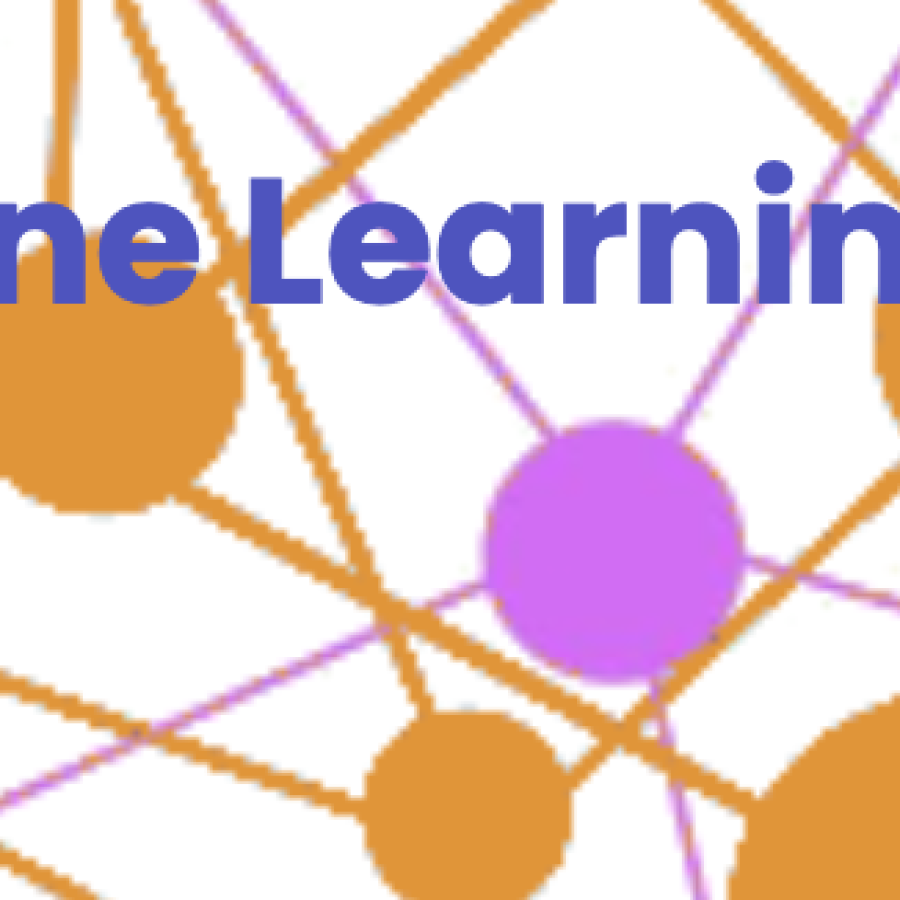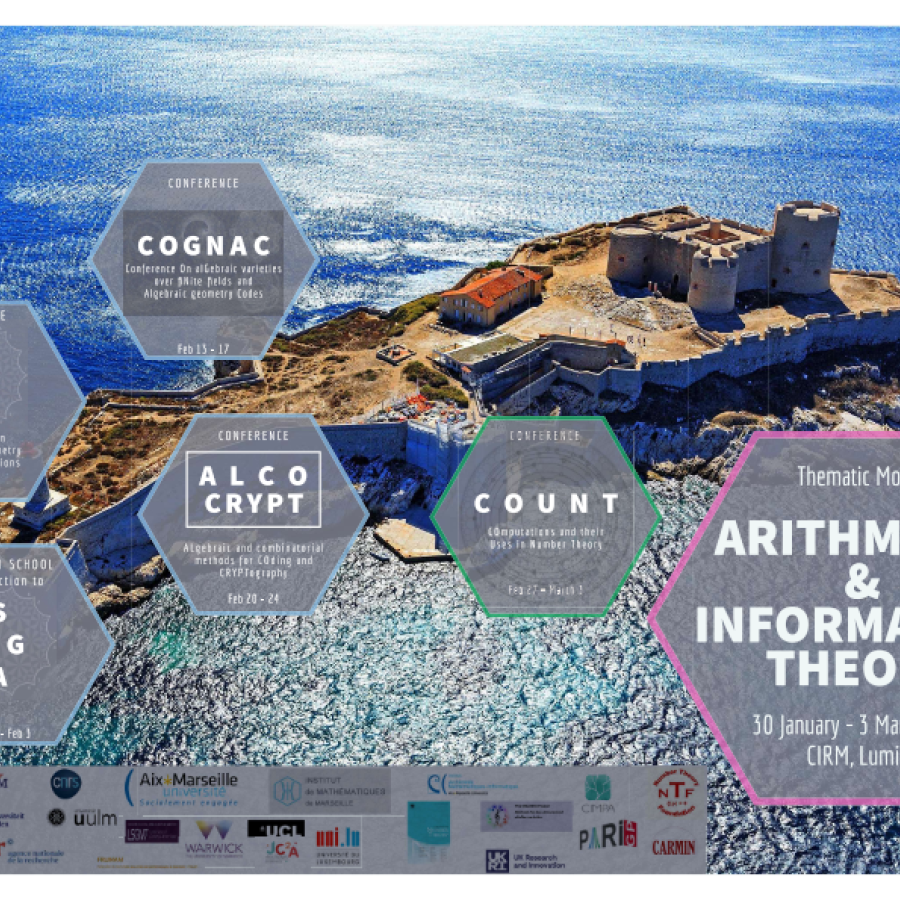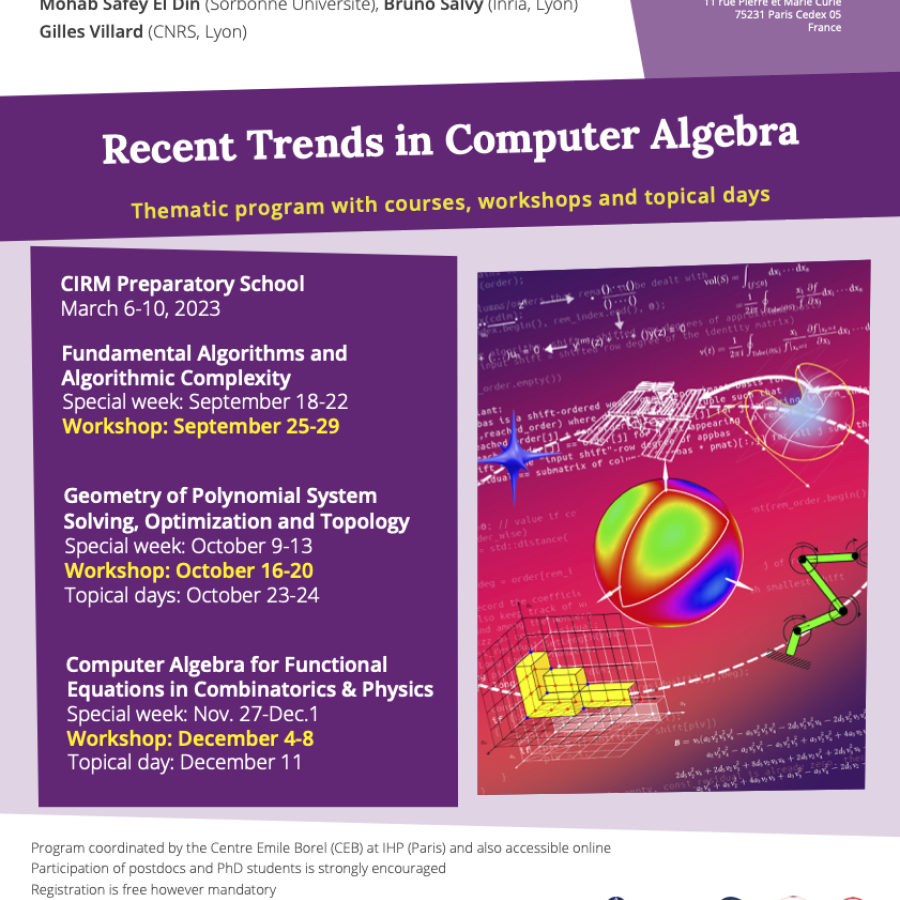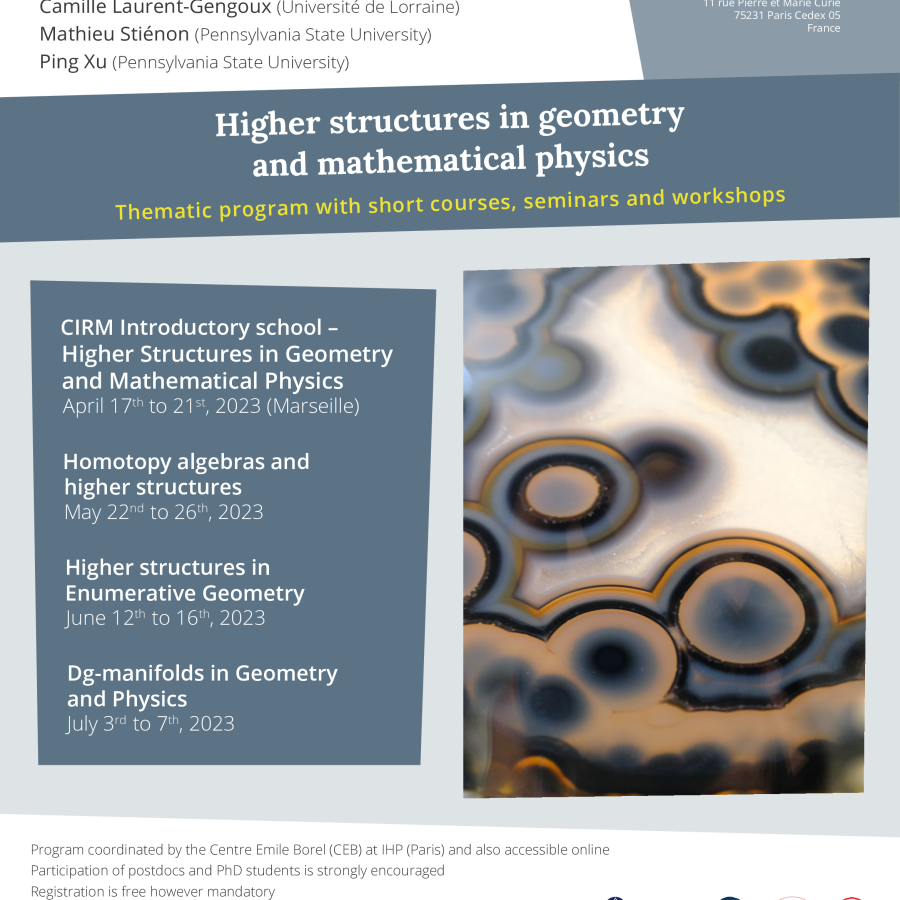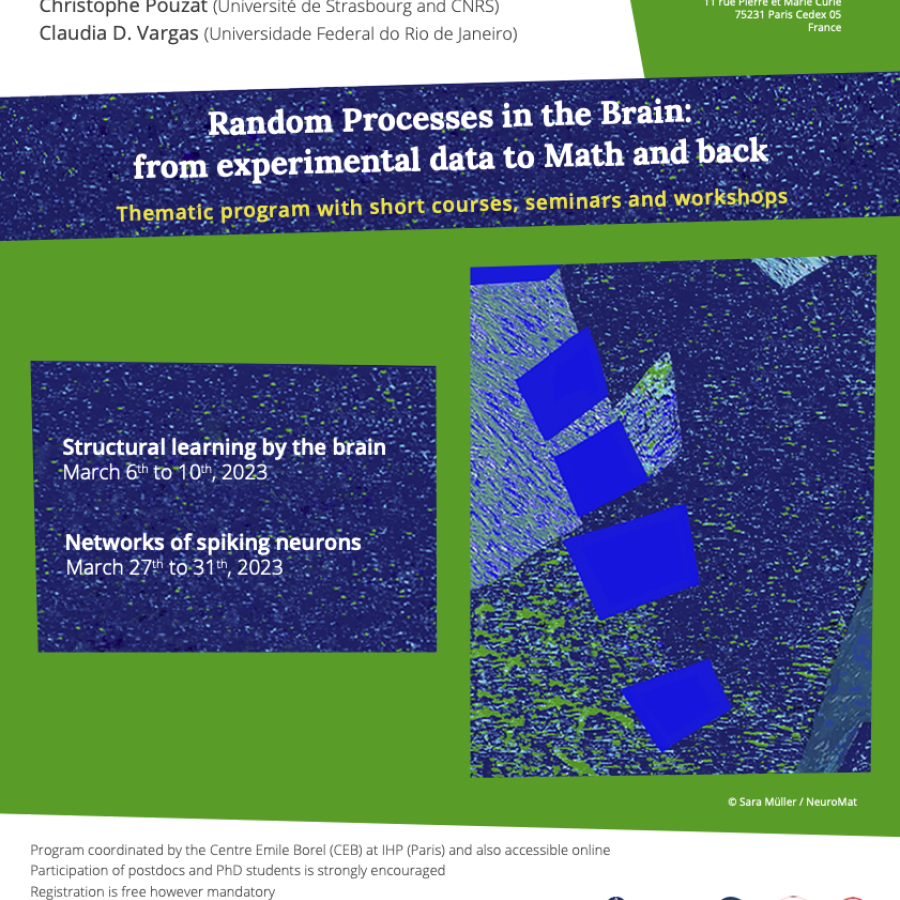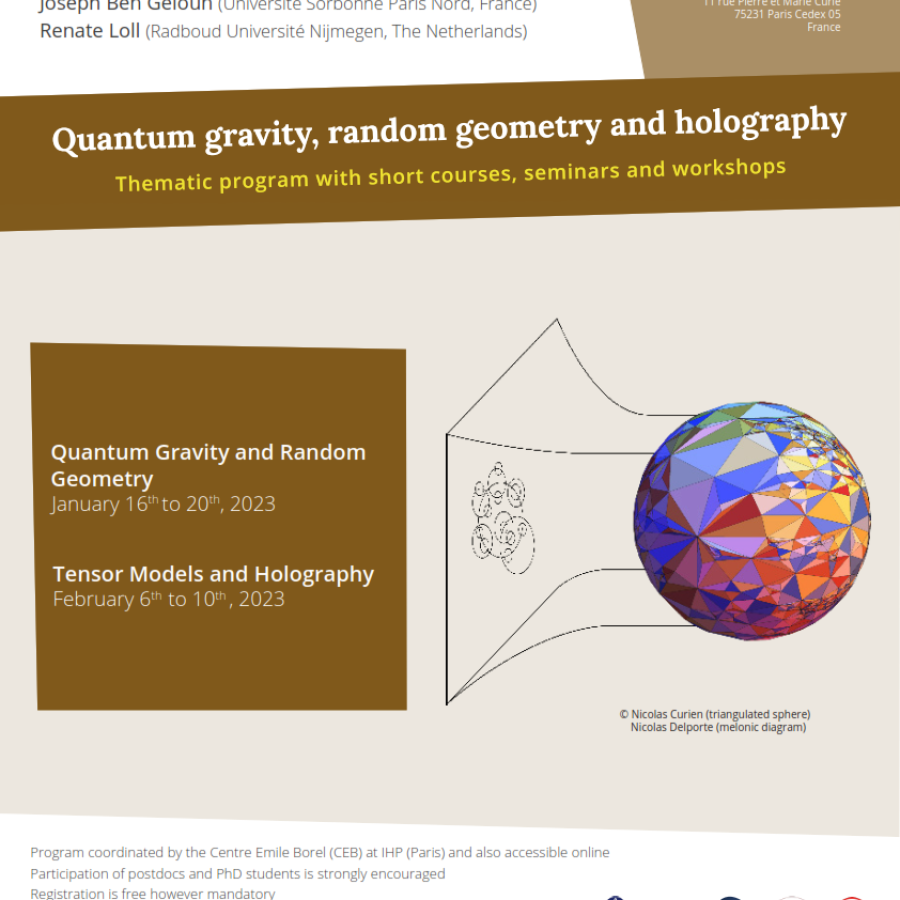Scientific Machine Learning (SciML) is a relatively new research field based on both machine learning (ML) and scientific computing tools. Its aim is the development of new methods to solve several kinds of problems, which can be forward multidimensional partial differential equations, identification of parameters, or inverse problems. The methods we seek must be robust, reliable and interpretable. The new SciML tools allow the natural inclusion of data in the numerical simulation in order to generate new results.
2023
Arithmetic and Information Theory
The thematic month “Arithmetic and Information Theory” focuses on arithmetic geometry, information theory and their interplay.
Higher Structures in Geometry and Mathematical Physics
Higher structures, in particular homotopy algebras, have appeared in many branches of mathematics and particularly in mathematical physics ranging from deformation theory, derived geometry, enumerative geometry, representation theory, homotopy algebras, Poisson geometry and quantization, mirror symmetry, noncommutative algebraic geometry, string theory and quantum field theory. This IHP trimester aims to promote interaction between mathematicians, physicists and groups working on related areas from different aspects.
Quantum Gravity, Random Geometry and Holography
The scope of the program is to bring together researchers who are working on quantum gravity from various perspectives and approaches, with an emphasis on the random geometry point of view and on more recent holographic developments. The main goal is to intensify the fruitful interactions between the researchers in these and related communities in order to make significant progress on the outstanding problems in quantum gravity.
Algebraic Number Theory
Alain Togbe
Polar varieties from Pascal up to now
Jean-Paul Brasselet
Topology and Big Data
Georges Oppenheim
Summary: La topologie computationnelle est une partie des mathématiques qui a vu le jour au début des années 2000 et qui est un domaine actif de recherches. De nombreux problèmes se posent et le centre d’Erbil devrait pouvoir y apporter sa contribution.


